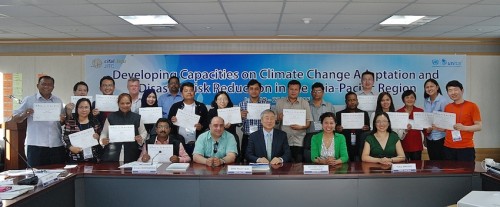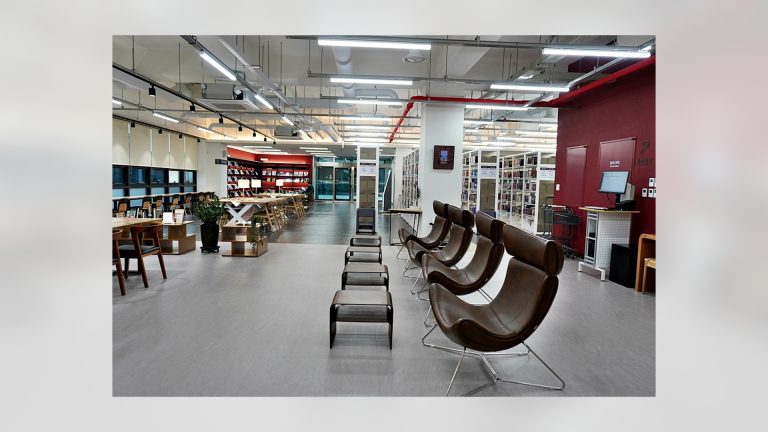A fruitful training workshop on “Developing Capacities in Climate Change Adaptation and Disaster Risk Reduction in Asia-Pacific” was held from 18-22 May in Seogwipo, Jeju – an island of sky and sea, and home to warm and hospitable people. 20 participants from 10 countries, including East Timor, learned from resource persons and from one another about the role of local governments and other actors in reducing and managing disaster risks and adapting to climate change.
The training was officially opened by UCLG ASPAC President and Jeju Special Self-Governing Province Governor Won Hee-Ryong. He heartily welcomed the participants to the first collaborative training program between UCLG ASPAC, CIFAL Jeju and the Jeju Government, and encouraged meaningful discussions and exchange around the themes. The training offered both substantial knowledge and concrete examples on the main topics. UNISDR official Armen Rostomyan led discussions on the global campaign “Making Cities Resilient (MCR)” and how to use the Local Government Self-Assessment Tool (LG-SAT).
Participants simulated the development of an Action Plan guided by the MCR Campaign’s 10-Point Checklist for three different local governments – Municipality of Dolores (Philippines), East Timor, and Jakarta (Indonesia).
The participants also attended sessions during the “10th Jeju Forum for Peace and Prosperity,” held at Haevichi Hotel and Resort in Jeju City. During the session on “Lessons Learned from Natural Disaster Management in the Asia Pacific Region: Role of Local Governments,” two participants from the training workshop presented their experiences.
Mayor Emiliana Villacarillo of Dolores, Philippines recalled her municipality’s difficult experiences before, during, and after the onslaught of Typhoon Haiyan in 2013 and how her municipality responded to the short-term needs of those affected. Afterwards, Director Yubasri, Head of the Rehabilitation and Reconstruction Division of the Banda Aceh Regional Disaster Mitigation Agency shared on their long-term response to the Indian Ocean Tsunami of 2004, highlighting the resiliency strategy they have developed. A representative from Jeju, Lee Gyeong-ho, also shared his experience and recommendations for managing disasters, mainly brought by heavy precipitation and in response to the potential damage that could be caused by future natural events such as what the island experienced with Typhoon Nari.
Presentations were followed by remarks from the discussants, led by Sanjaya Bhatia, and joined by UCLG ASPAC Secretary General Dr. Bernadia, World Bank’s Global Facility for Disaster Risk Reduction (GFDRR) Senior Operation Officer Yuka Makino, and Graham Brewer, Director of Centre for Interdisciplinary Built Environment Research (University of Newcastle, Australia). They raised the issues of community engagement, ensuring sustainability beyond the time-bound agreement with donors, and the need for better planning for post-disaster situations such as anticipating the heavy influx of volunteers.
Overall, the feedback from participants was optimistic and many expressed their intentions to apply some of the tools and experiences gained from the training and from fellow participants, respectively. Some of these include engaging more with the private sector and creating more opportunities for civil society participation in DRR activities. Moving forward, plans are underway to continue promoting disaster risk reduction through the “Making Cities Resilient” campaign and to engage with new partners on relevant activities. The training workshop also encouraged and reinvigorated the participants to boost their efforts in DRR in their own spheres of influence and most importantly, to begin by applying the lessons learned on preparedness even at the individual level. Indeed, a key message for all was that DRR “is everyone’s business.”











